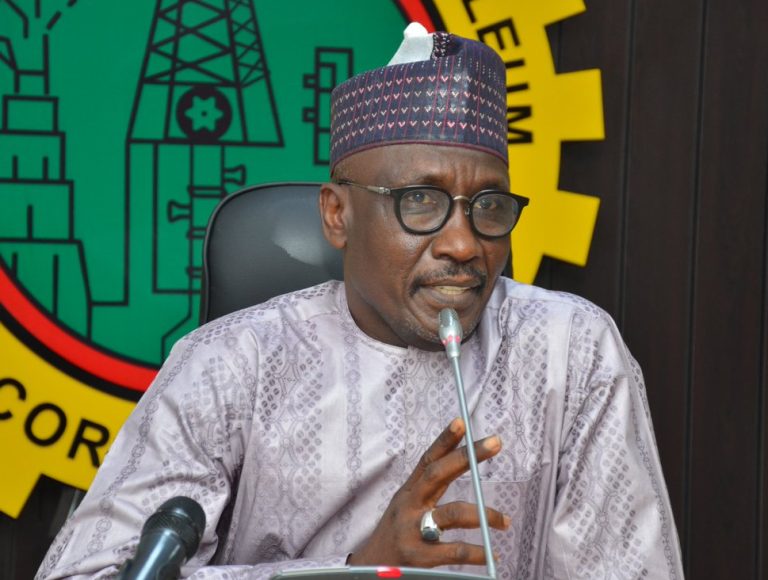
The Nigeria National Petroleum Corporation (NNPC) has finalised investment commitments in fossil fuel in new deals worth billions of dollars despite the global shift to clean energy.
The national oil company at the ongoing Intra-African Trade Fair has signed a deal worth billions of dollars.
Specifically, the corporation signed a five-year agreement worth $1.04 billion with the African Export-Import Bank (Afrexim Bank) in a deal that has been described as the biggest so far at the ongoing Intra African Trade Fair in South Africa.
The ICIR reports that the NNPC and the Afrexim Bank deal did not involve exploration of crude oil, but mainly for trade financing and export of the crude produced by the national oil company.
In a monitored broadcast on Arise Television, it was disclosed that the $1.05 billion would be repaid to the continental bank with about 25,000bpd of crude oil produced by the state oil company.
This commitment to fossil fuel analysts say is clearly in contrast to Buhari’s commitment at the just concluded Cop26 United Nations Conference in Glasgow Scotland.
Buhari had at the Cop26 climate conference pledged Nigeria’s commitment to cut carbon emission to net-zero by 2060.
Buhari also pledged to end deforestation by 2030 as part of measures to fight climate change.
To consolidate Nigeria’s stance, Buhari on Thursday signed the Climate Change Bill into law, which analysts say paves way for environmental commitments to net zero-emission targets.
According to Buhari, “Desertification in the North, drought in the center, pollution in the coast are enough evidence for all to see 2060.”
Buhari who further spoke on Lake Chad said, “In our lifetime, Lake Chad has gone from an adverse expanse of biodiversity to a shadow of itself; we are investing in renewed growth, hydro dams and solar project. Nigeria is not looking to make the same mistake that will be suffered in the future.”
Despite the president’s commitments, some analysts believe that the relevance of fossil fuel will remain despite global funding partners shifting focus to clean energy.
Specifically speaking on ‘Energy Transition: Dreams or Reality’, at a monitored conference Energy Outlook Advisor, LLC, United Kingdom, Alhaji Anas said: “We need all energy sources. Global oil demand will continue to grow. It is easy to separate oil from water, but impossible to separate oil (energy) from politics. Energy is a political football. When politics and markets collide, expect a crisis.”
Anas who did not think solar and wind would replace oil and gas in Europe, the Organisation for Economic Co-operation and Development, OECD, India, and China, also said: “Dependence of most industrial and emerging economies on fossil fuel remains high. The impact of climate change policies on oil demand is highly exaggerated. The impact is mostly on-demand growth, not on-demand itself.
“African countries can reduce their carbon footprint by focusing on energy efficiency and the low hanging fruits, save oil and gas for exports or value-added industries and place solar and wind projects strategically.”
Also speaking, lead promoter, EnergyHub Nigeria Felix Amieyeofori said: “It is very unlikely that fossil fuel will go away. Demand for oil is still increasing. I do not see the demand for oil, coal and others disappearing. The world will still depend on oil and gas. I cannot see the United States, China and India complying overnight.
“But we should not ignore the fact that there is serious pressure on us to shift to clean energy. Africa should come together to decide on what to do. We can decide to produce more oil and gas while embarking on research and development required for the energy transition.”
The Managing Director Newcross Petroleum Limited Victor Sodje who urged operators in the oil and gas industry to guide against environmental pollution while producing oil and gas, said, “We need to do our businesses differently. We need to capture the carbon and keep our environment protected.”
On the back of Nigeria’s reliance on oil, the World Bank reported that Nigeria was highly vulnerable to the global economic disruption caused by COVID-19, particularly due to the decline in oil prices.
Oil accounts for over 80 per cent of exports, a third of banking sector credit, and half of the government revenues.
In 2018, 40 per cent of Nigerians (83 million people) lived below the poverty line, while another 25 per cent (53 million) were vulnerable.
The number of Nigerians living below the international poverty line is expected to rise by 12 million between 2019 and 2023.
Experts have earlier raised questions on how realistic Nigeria’s commitment is with the NNPC making huge commitments in fossil fuel deals.
SOURCE: icirnigeria.org


